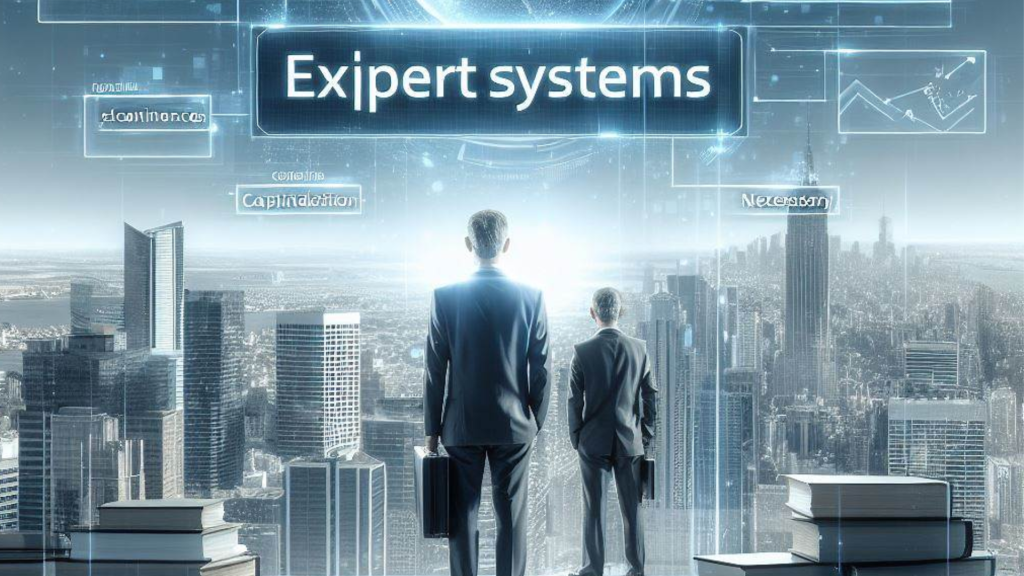Expert System in Business: Navigating the Information Age In the contemporary business landscape, the seamless operation of various functions hinges on the effective utilization of information systems. We find ourselves squarely in the Information Age, where the significance of information cannot be overstated. Information, essentially, is data imbued with meaning, and it is the bedrock upon which successful business operations are built. The adage holds true: Quality information begets quality output.
To effectively manage, retrieve, collect, and process this vital information, businesses require a system aptly named an Information System. These systems play a pivotal role in the day-to-day operations of organizations, ensuring the smooth flow and utilization of information. In this context, delving into the intricacies of “Expert Systems in Business” becomes imperative—examining their importance, understanding their meaning, exploring their types, and recognizing the need for their integration within the business realm. Uncover the nuances and details of Expert Systems in Business to stay abreast of the evolving landscape where information is not just data; it’s the key to success.
इस पोस्ट में क्या है ?
Unlocking the Potential: Expert Systems in Business
In the vast landscape of business systems, Expert Systems stand out as a beacon of intelligence and problem-solving prowess. These systems are a subset of artificial intelligence, harnessing specialized knowledge to resolve issues at the level of a human expert. Essentially, an Expert System steps into the shoes of a specialist, leveraging its knowledge to offer solutions, providing users with a dynamic and interactive problem-solving experience.
Understanding Expert Systems
At its core, an Expert System is an intelligent computer program designed to tackle problems using knowledge possessed by experts. This specialized branch of artificial intelligence plays a pivotal role in decision-making and problem-solving, mimicking the problem-solving approach of a human expert.
Components of Expert Systems
- Knowledge Base: Comprising relationship rules and data rules, the knowledge base encapsulates the professional insights of experts, forming the foundation for problem-solving.
- Inference Engine: This component integrates logic and resolving mechanisms, acting as the driving force behind the decision-making process.
- User Interface: Enabling seamless communication between users and the expert system, the user interface ensures an interactive and user-friendly experience.
- Explanation Facility: Providing users with insights into the logic employed by the expert system, aiding in understanding the decision-making process.
- Knowledge Acquisition Facility: Building a robust knowledge base requires collaboration between human experts and knowledge engineers, ensuring a wealth of expertise.
The Need for Expert Systems: Several factors underscore the necessity of expert systems:
- The expense and scarcity of expert labor.
- Addressing the shortage of experts.
- Human experts’ limitations in handling a limited number of factors simultaneously.
Benefits of Expert Systems
- Reduction in the cost of expertise per user.
- 24/7 availability of expert assistance.
- Guiding new users to think like experienced experts.
- Emotional neutrality, avoiding human emotional biases.
- Serving as a strategic tool in various domains.
- Permanent expertise compared to the transient nature of human experts.

Business Applications of Expert Systems
- Marketing: Determining discounts, quantities, and sales-related factors.
- Manufacturing: Ensuring correctness in processes and timely corrections.
- Accounting: Aiding in financial decisions and credit authorization.
- Business Operations: Facilitating smooth business operations, training, and performance evaluation.
Limitations of Expert Systems
- Lack of common sense in decision-making.
- Challenges in making corrective decisions in unusual cases.
- Inability to explain the logic and reasoning behind decisions.
- Performance constraints in a changing environment.
- Risk of erroneous decisions due to incorrect information in the knowledge base.
The Future of Expert Systems
The future of expert systems appears promising, with widespread integration into various facets of life. As structured problems arise, expert systems will likely be the first port of call for solutions, contributing to strategic advantages in navigating life’s complexities. The trajectory suggests a bright and transformative future for expert systems.
Expert Systems in Business FAQ
An Expert System in business is an intelligent computer program that leverages specialized knowledge to solve problems, mimicking the problem-solving capabilities of human experts.
The key components include the Knowledge Base (comprising rules and data), Inference Engine (logic and resolving mechanisms), User Interface (for interaction), Explanation Facility (providing insights into decision logic), and Knowledge Acquisition Facility (building the knowledge base).
Expert Systems are needed to address the expense and scarcity of expert labor, cope with the shortage of experts, and overcome the limitations of human experts in handling multiple factors simultaneously.
Benefits include a reduced cost of expertise per user, 24/7 expert availability, guidance for new users, emotional neutrality, strategic tool utility, and the permanence of expertise.
Expert Systems find applications in marketing (determining discounts and quantities), manufacturing (ensuring process correctness), accounting (financial decisions and credit authorization), and overall business operations (smooth functioning, training, and performance evaluation).